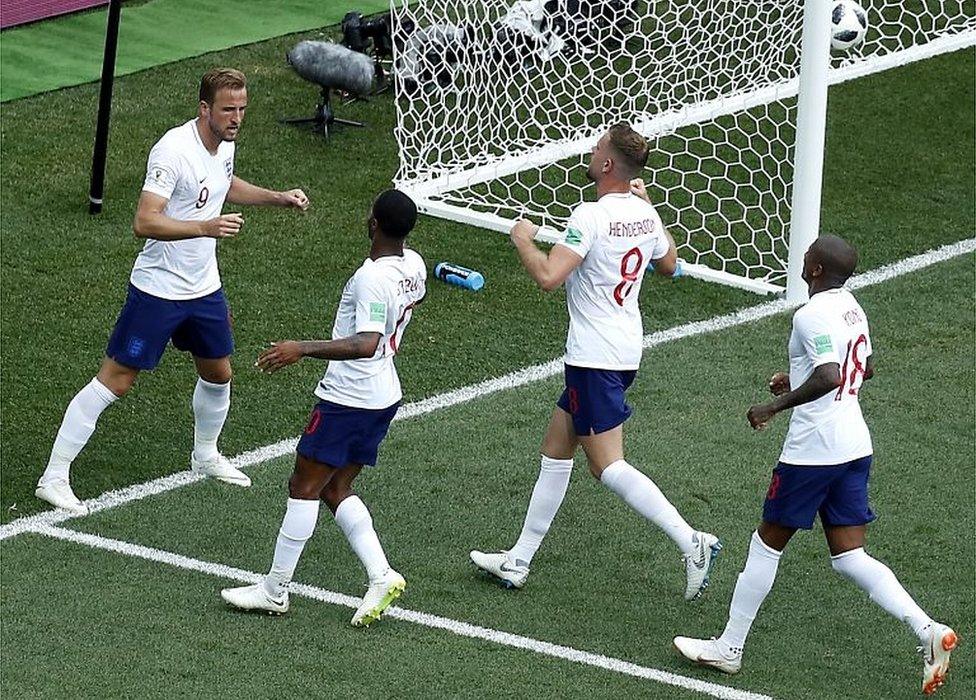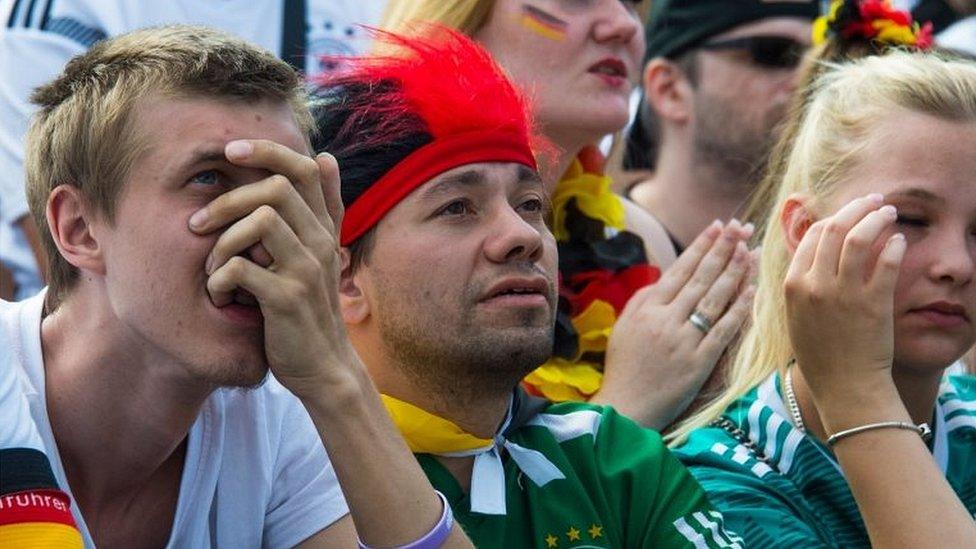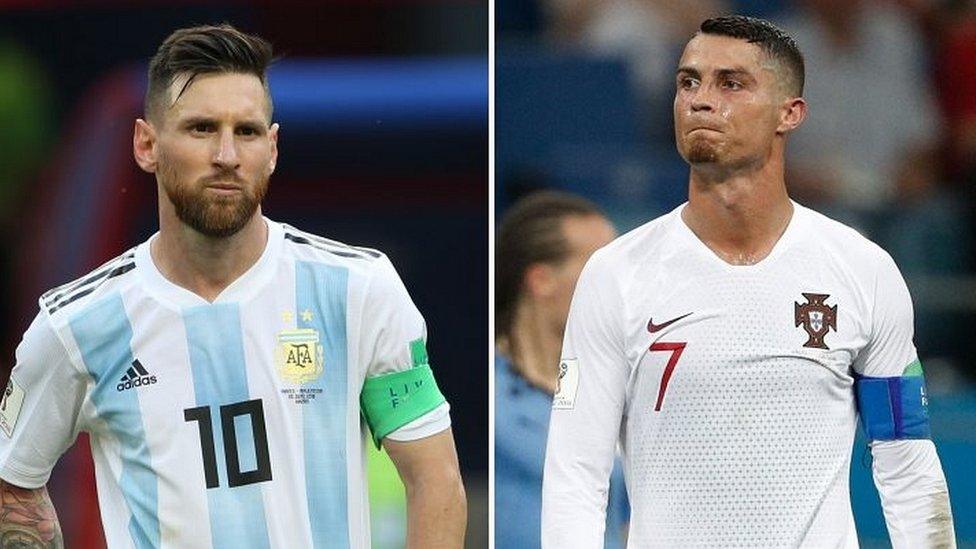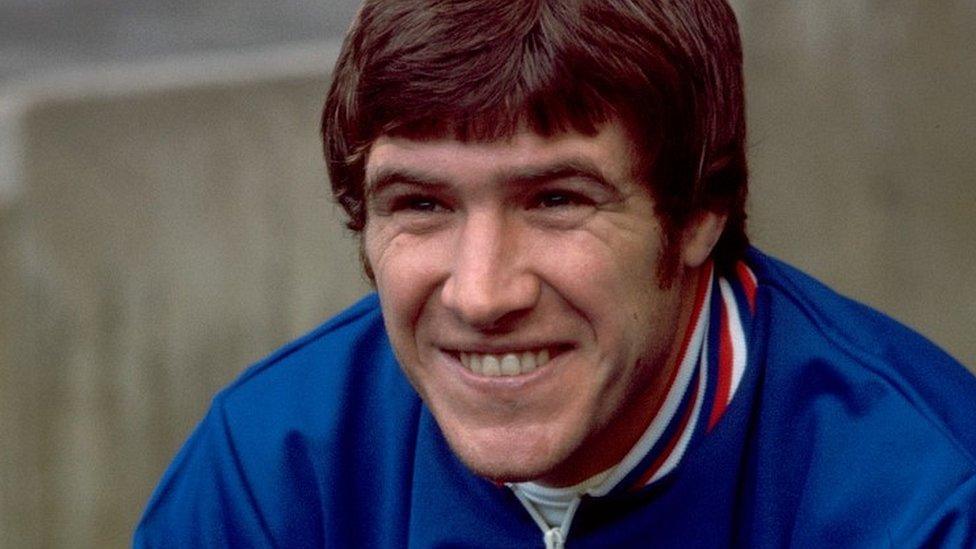Reality Check: Do footballers get paid for internationals?
- Published

France's Kylian Mbappe is donating his earnings from playing at the World Cup to a charity. But do all footballers get paid for representing their countries?
There's rather a lot of money in football. Premier League players now earn in excess of £50,000 a week on average.
At this year's World Cup, total prize money has risen from $358m (£271m) in 2014 to $400m, with $38m going to the winners. Fifa, the sport's world governing body, allows individual countries to decide how much to pay in appearance fees and how to divide up prize money.
It has been reported - but not confirmed by the Football Association (FA) - that England's players, should they win the competition, will share a £5m bonus., external France, Belgium and Brazil have also promised extra money.
In other words, some of the richest sportsmen on Earth could get a bit richer.
But teenage French striker Mbappe has caused a stir by revealing he is giving his £17,000-per-match World Cup appearance fees to a charity providing sporting activities for disabled children.
In this, he is following the example set by England's players since 2007. In that time, all the appearance fee money they would have received has instead gone to the England Footballers Foundation, which has distributed more than £5m to charities.
The FA does not reveal the size of England men's appearance fees and a spokesman told Reality Check: "We won't be releasing any information regarding player payments."
So, instead, we have worked out a rough figure, based on the £5m or so raised since the players' decision to forgo their appearance money.
From the start of 2008 up to and including England's game against Colombia on Tuesday, there have been 122 matches. That suggests total payments to players per match have come to about £41,000 on average.
If a squad consists of 23 players - some contain fewer, some more - that equates to just under £2,000 per squad member per match. If the money is shared among only those who get on to the field, rather than just the bench, that amount would rise by a few hundred pounds.

Promises of player bonuses didn't seem to help Germany
If these sorts of sums - described as "prudent" estimates by Rob Wilson, a sports economist at Sheffield Hallam University - are correct, they are small compared with club wages. They are a lot lower than Mbappe's £17,000 per game for France, too.
Harry Kane, if our calculation is right, would earn about one-hundredth of his £200,000 weekly pay for Tottenham Hotspur each time he turns out for England.
"It's not big money by their standards," says Dr Wilson. "When you put it in the context of the Premier League, it doesn't even scratch the surface."
But what of England's potential £5m bonus, should they win the World Cup? The FA would not confirm whether the players would, as with their appearance fees, give the money - equating to £217,000 per squad member - to charity. If they did, this would approximately double the amount the England Footballers Foundation has raised.

At least they won't be picking up any injuries at the World Cup
But even World Cup bonuses are not where the big money is for star players.
Fifa says coverage of the tournament has been watched for at least 20 minutes by 2.2 billion people.
This exposure means potentially millions of pounds in sponsorship and endorsements. "You always see a spike in earnings post-competition, particularly among the top four or five players," says Dr Wilson.
Not everyone in football feels joy when the World Cup happens. Clubs have often clashed with national managers over player fatigue and potential injury.
So, the FA provides clubs with an undisclosed amount of money for footballers' absence for international matches.
And Fifa has set aside $209m to compensate clubs for the loss of players, external over the World Cup period. This equates to about $8,530 per person per day, effectively subsidising wages for a while.
Since 2012, Fifa has also insured against players getting injured while on international duty. This pays up to £27,000 a day, which would just about cover Kane, but not the likes of Lionel Messi, Cristiano Ronaldo or Neymar.

Emlyn Hughes said he would have paid money to play for England
Despite all the talk of money, profiting from one's country is a taboo among footballers - and has long been so.
When Don Revie became England manager in 1974, his efforts to raise pay did not impress captain Emlyn Hughes.
"He came out and he said, 'Listen, lads. I've managed to get your appearance money raised from £100 to £300'," Hughes once said. "Now, if you were picked for England, you'd pay £3m to play for your country."
Before this year's World Cup, Germany's football association announced that its players would receive £57,000 for reaching the quarter-finals - £95,000 for reaching the semi-finals and £152,000 for runners-up slot. Winning would mean £265,000 each.
But the association's president, Reinhard Grindel, was clear that "the sporting challenge rather than the financial award" would motivate players.
Dr Wilson thinks today's England footballers (who have already progressed two stages further than Germany) feel the same.
"They get paid a lot for playing for their clubs, so, over the years, the appearance fees they get for international football have - if anything - become less important to them," he says.
"Even if they were still only getting the same sort of money they got in the 1960s, I'm sure the 11 players who go out on the pitch for England would be footballers. It's something they love."


